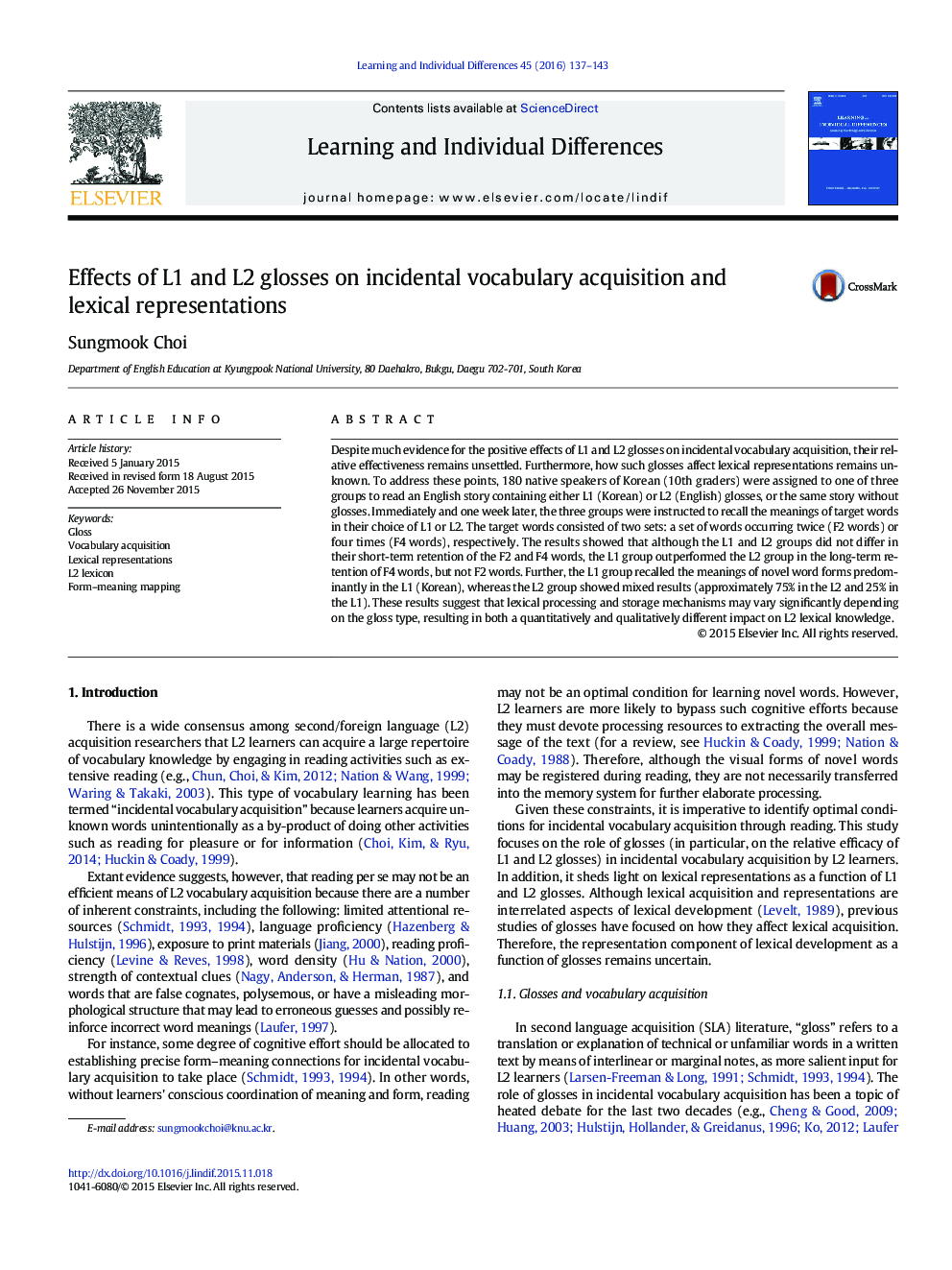| Article ID | Journal | Published Year | Pages | File Type |
|---|---|---|---|---|
| 364512 | Learning and Individual Differences | 2016 | 7 Pages |
•The relative efficacy of L1 and L2 glosses on incidental vocabulary acquisition remains at issue.•In addition, how these glosses affect lexical representations remains unknown.•L1 and L2 glosses were similarly effective in short-term vocabulary acquisition.•However, L1 glosses were more effective in the long-term retention of more frequently occurring words.•L1 and L2 glosses resulted in fairly distinct form–meaning representations.
Despite much evidence for the positive effects of L1 and L2 glosses on incidental vocabulary acquisition, their relative effectiveness remains unsettled. Furthermore, how such glosses affect lexical representations remains unknown. To address these points, 180 native speakers of Korean (10th graders) were assigned to one of three groups to read an English story containing either L1 (Korean) or L2 (English) glosses, or the same story without glosses. Immediately and one week later, the three groups were instructed to recall the meanings of target words in their choice of L1 or L2. The target words consisted of two sets: a set of words occurring twice (F2 words) or four times (F4 words), respectively. The results showed that although the L1 and L2 groups did not differ in their short-term retention of the F2 and F4 words, the L1 group outperformed the L2 group in the long-term retention of F4 words, but not F2 words. Further, the L1 group recalled the meanings of novel word forms predominantly in the L1 (Korean), whereas the L2 group showed mixed results (approximately 75% in the L2 and 25% in the L1). These results suggest that lexical processing and storage mechanisms may vary significantly depending on the gloss type, resulting in both a quantitatively and qualitatively different impact on L2 lexical knowledge.
